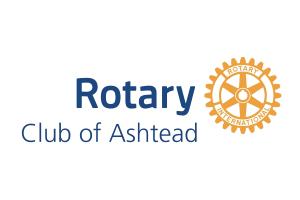Elephants for Africa joint meeting.
Wed, Oct 9th 2019 at 7:30 pm - 10:00 pm
VENUE: Tyrrell's Wood Golf Club.
Presentation by Dr. Kate Evans regarding her work with Elephants for Africa, building safe havens for wildlife, which integrate with and help the local communities. Guests most welcome.
Elephants for Africa
A history of partitioning wildlife away from humans has created situations where people lack ownership of the problem and an expectation that others will take care of the issues. Home to the largest remaining elephant population, Botswana is often revered as the stronghold for the African savannah elephant and a conservation success story. That success comes at a cost: a marginalized rural population seeing wildlife for high-end tourism and not in any way of benefit to them; in contrary, they are paying a heavy price for living alongside wildlife areas with very little support or incentive to coexist with, let alone protect it. With the majority of the human population still rural and dependent on subsistence farming, and with unemployment levels highest in these areas, vast regions of Botswana, vital for the continued survival of wildlife populations, are ripe for exploitation by wildlife crime syndicates.
Khumaga village is at the gateway to the Makgadikgadi Pans National Park on the southern border of KAZA Transfrontier Conservation Area, home to a predominantly male elephant population (98% of sightings) with hundreds of tourist driving straight through the heart of the village to get to the wildlife, without stopping to greet the villagers or even to think about the consequences for them of living next to a National Park to which they have travelled thousands of miles to see. So it is no wonder that resentment and fear towards wildlife are high as community members struggle to survive, let alone prosper, living alongside a jewel of Botswana ecotourism industry.
Slowly but surely the language is changing as we, Elephants for Africa, work in partnership with the community to build coexistence between humans and wildlife and the community takes ownership. Workshops focusing on mitigation techniques, entrepreneurship and conservation agriculture are enabling the community to increase yield, investigate opportunities to benefit from wildlife and improve employment opportunities. Visits into their national park by children, farmers, teachers and elders show them their wildlife in a wild situation and give them the opportunity to learn from local guides, dispelling the myths that grow fear. Now other communities are seeing Khumaga change, hearing a different language being used in relation to elephants and are asking to partner with us. Change may be slow but it is building those long-term solutions to the challenges these communities face as well as the invisible barrier to wildlife syndicates.
Dr Kate Evans
Dr Kate Evans is Founder and Director of Elephants for Africa. She is an award winning behavioural ecologist and conservation biologist who conducted her PhD ‘The behavioural ecology and movements of adolescent male African elephant in the Okavango Delta, Botswana’ through the University of Bristol. Her interest in male elephants has expanded to focus on the social and ecological requirements of male elephants in the context of a human landscape.
Contact Julie Haines about this page:
'What We Do' Main Pages:



